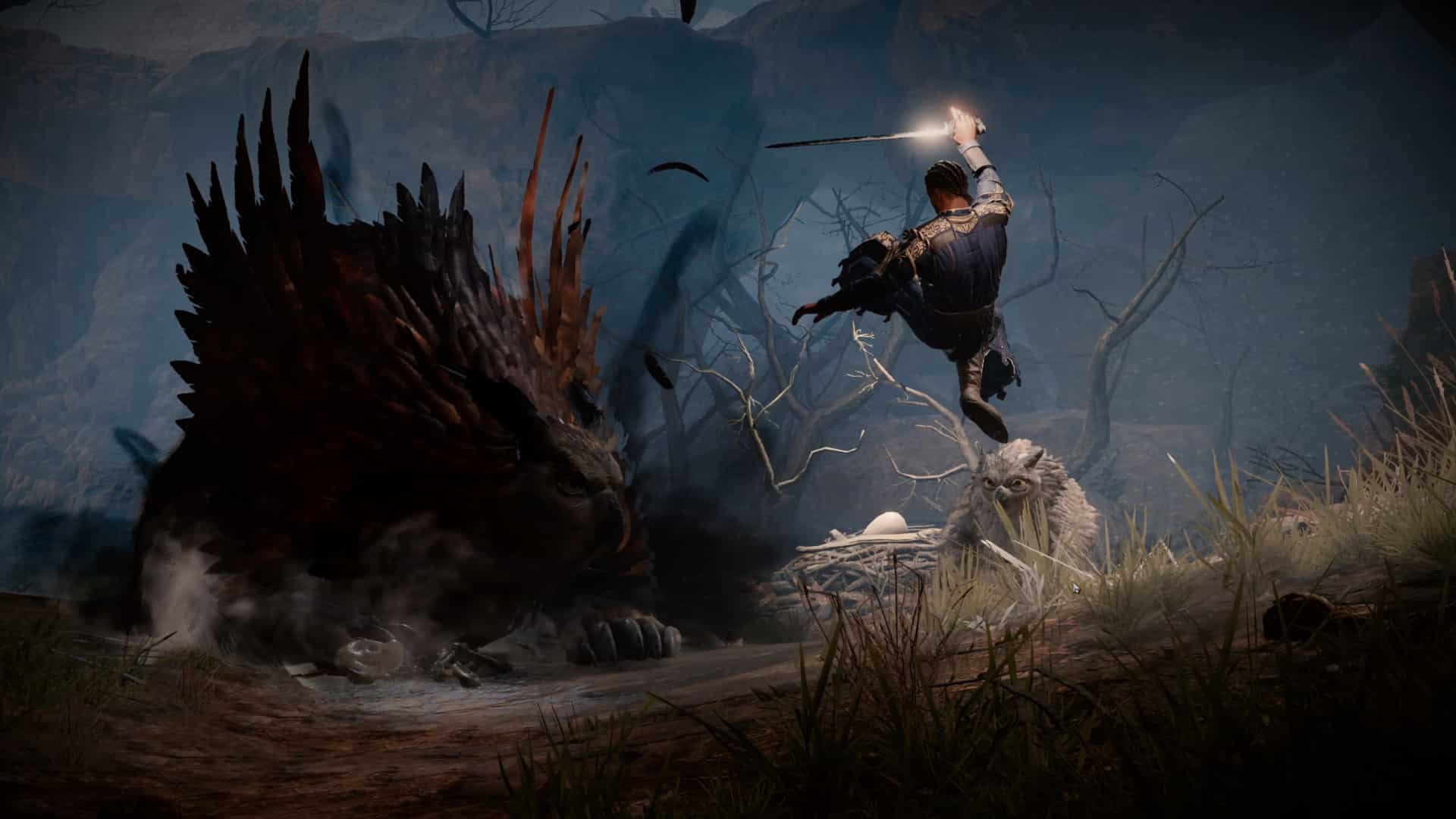The Complete History of Role-Playing Games (RPGs): Part 12 – Choose Your Own Adventure
Role-playing games, or RPGs, form one of the most lucrative genres of computer games in the world today, demanding tens of hours of dedicated play from gamers and rewarding them with rich storylines, memorable characters and an often-emotional escape into other worlds.
How did RPGs come to be? What are their origins and how did this once-minor pastime of interactive storytelling become an industry behemoth? Here at Ultimate Gaming Paradise, we have some of the answers, brought to you in this growing series of articles.
It’s time to make a choice…
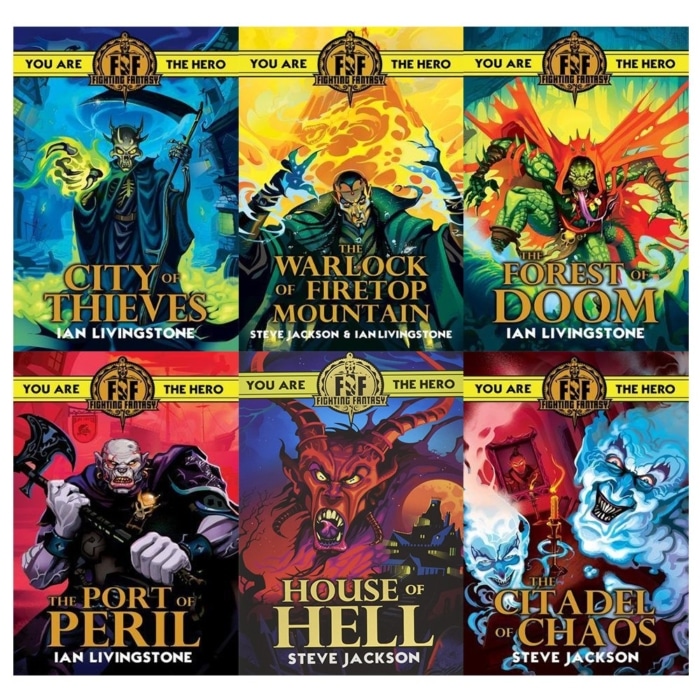
Episode Twelve: Choose Your Own Adventure
Choices matter. Way back in the early 1980s, when Steve Jackson and Ian Livingstone wowed the fantasy lover’s world with the Fighting Fantasy series of books, mainstream readers played catch-up with the more generic Choose Your Own Adventure books, and author/game designers knew they were on to a great thing.
Players like to make choices.
Even when that choice was as simple as “Will you fight the orc (turn to 117) or try to run away (turn to 86)”, it still gave power to the player.
Today, in a world of greater understanding and wider vocabulary, we commonly call that agency.
For decades, the narrative player agency was something that was missing in role-playing games. There had always been the illusion of it, but when an RPG from the 1980s and 1990s is broken down, often what lies beneath the surface are a lot of statistics and very little control over the story. Players had agency over tactical decisions in combat, but the path from the beginning of the story to the end was completely linear.
Really, there was no role-playing in the role-playing games.
What was needed to turn that corner was a concerted look at how the story unfolds. What if there were a multitude of possible endings and the choices that a player makes during the course of the game affected which ending they saw? What if non-player characters interacted with the player characters differently depending on how they have been treated? What if your reputation can precede you?
Popular Products
The Early Days of Multiple Endings
Probably the very first example of choice in RPGs came in the form of multiple story endings, first notable in Dragon Quest from 1986. There, it was simple, with the player being given the choice to join the Dragonlord in ruling the world. Select “no” and fight the Dragonlord, say “yes”, however, and view an alternative ending. There’s even a subtle difference in the ending that depends on where the princess is when you finish the game—if she’s still imprisoned in the cave then the poor hero is left to adventure on alone.
In 1992, Square played with the concept of multiple endings again with Final Fantasy V. It’s a small touch, with slightly different end results depending on which characters survive the final fight.
Then, to much fanfare, 1995 brought Chrono Trigger. This genre-defining game centred around a time travel narrative and used the order of events the player undertook to determine what happened in the end. By modern standards, it is quite a simple execution, but it was a significant evolution of the simpler multiple endings systems used in earlier games.
Chrono Trigger had twelve endings (although a later remade port added a thirteenth), some of which were ridiculously difficult to trigger (pun intended) and many of which can only be achieved in a new game plus after the game has been completed at least once. This level of difficulty, however, meant that the multiple endings were really only there for the most dedicated players and generally, casual players experienced the same standard finish to the game.
All of these early attempts with multiple endings, however, don’t really provide what is really important: player agency.
For multiple endings to matter, surely they have to be a core part of the game, achievable by everyone and not just a fluke of end-boss tactics or fanatic-level game replay decisions.
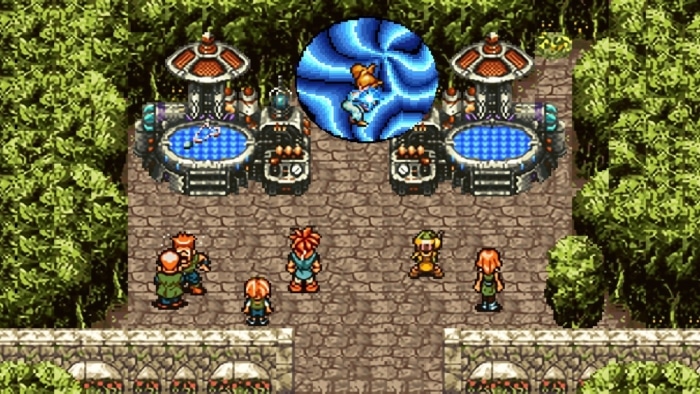
Blending Genres
By the time the 21st Century rolled around, the line between RPG and other game genres was beginning to be very blurry. What did define a role-playing game? Originally, it had been an attempt to take the experience of playing a tabletop role-playing game such as Dungeons and Dragons and replicate that on a computer. Time and multiple attempts in the previous three decades had pigeonholed the term “RPG” to more represent a tactical strategy game played on a hero, or group-of-heroes level (as opposed to the army level of a war strategy game). There were story elements, as well, but this seemed to be secondary to the idea of levelling up characters and collecting equipment.
Yet, the story is at the very core of what makes a role-playing game. You are, by very definition, wanting to play a role in a narrative.
So when, in 2000, Deux Ex has released it, arguably, was a role-playing game.
Some purists liked to suggest Deus Ex was an action game, or a first-person shooter, or a stealth game. All of these claims are true, but they do not counter the fact that at its core, this was an RPG.
And an RPG that really did put choices and player agency at the centre.
This was no single-path linear game. Every mission could be completed in a multitude of ways and the story altered based on player actions. It was even possible to kill bosses in the ‘wrong’ order, taking one or two out early on so that they didn’t appear at the more normal point in the game.
Fresh In
But wait. If Deux Ex was a role-playing game because of its story-driven narrative and player agency, didn’t that mean System Shock, released in 1994, was too?
System Shock was never labelled an RPG. It came out in the mid-90s while Square was busy trying out multiple endings in their JRPGs and if anyone at the time had suggested that System Shock and Chrono Trigger were similar, they wouldn’t have been taken seriously. System Shock, after all, looked and felt more like Doom than Final Fantasy.
It was System Shock, however, that laid some of the foundations for Deux Ex. It was developed by Looking Glass Studios who had also made Ultima Underworld, most definitely an RPG, and even shared some of the intrinsic feel of that other game.
This blending of genres fixed many of the problems that had plagued RPGs throughout the 1990s and helped developers get back on track to that original vision of a computerised version of Dungeons and Dragons. By learning from other genres and merging all these divergent ideas, wouldn’t it be possible to soon make the dream?
The Age of Dragons
BioWare.
It’s a name that deserves a line all to itself. Bold and out in front.
BioWare was formed in Canada in 1995. In 1998 they created Baldur’s Gate, itself a major achievement in the RPG genre, bringing a truly epic computer game title to the official Dungeons and Dragons brand.
That wasn’t enough, however.
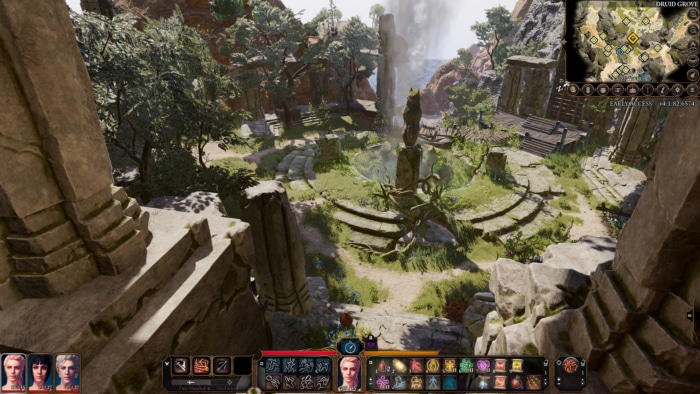
In 2002, BioWare released Neverwinter Nights. Not to be confused with the massively multiplayer game of the same name, this Neverwinter Nights was a true attempt to bring the feel of tabletop Advanced Dungeons and Dragons to desktop computers. Neverwinter Nights deserves more than a sideline mention, but its focus was not on player agency and so it isn’t a candidate for this particular article.
A year later, BioWare created Star Wars: Knights of the Old Republic. Again, this masterpiece is owed more than a short mention but, though there were both light-side and dark-side paths through its narrative, KotOR did not manage to properly capture player agency.
Then, in 2007, came Mass Effect, followed swiftly by Dragon Age: Origins in 2009.
Of all the games that impacted the role-playing scene, giving true impact from choices made and redefining how player agency was considered, these two stand as key moments.
What both Mass Effect and Dragon Age: Origins offered were ways for you, as the player character, to fully invest in the friendships and deeper relationships between the protagonist and the non-player characters. In both, your every word and action felt like it had weight. You could upset your friends, cause them to go down different paths in their own lives, and, ultimately, you could fall in love.
In BioWare’s magnificent titles, the connection between the player character and those NPCs that formed the team was so strong that romantic relationships blossomed. When the cutscene played that showed the hero (or heroine) reaching out for a passionate kiss, it was an eye-opening minute of genre-defining brilliance. This moment only came about because the choices that had been made had been tailored to fit. Say something a bit disparaging earlier in the game, or walk past moments of connection, and the kiss would never happen. Or it might. It might happen with a different character. Who knows?
Popular Products
This was the moment when the experience of playing the game became individual. Your game and your experiences were not the same as your friend’s. It was almost impossible that they would be. Unless you were following a guide, there’s little chance that you would make all the same choices. And why would you want to?
It was a fantastic change in the way role-playing games were developed and changed the landscape forever.
Completing the Game
One of the side-effects of giving the player a more immersive and engaging experience through the narrative agency is that it was possible—and indeed, likely—to get to the end of the game with the nagging feeling that you had missed something.
Probably because you had.
Once games began providing multiple paths, divergent storylines and a variety of character responses, it became all but impossible to reach a state of 100% completion. Of course, there were some fans of the game who were willing to put the hundreds of hours in to do that, but even they probably missed one of the conversation paths or failed to see a minor cutscene.
To some purists, this was perceived as a problem. After all, computer games were limited to digital environments and seeing every corner and crevice of the design was important to them.
Of course, the opposite is true. The inability to ‘complete’ the game makes it truer to real life and a pseudo-simulation of some sort of fantasy existence which is, after all, the ultimate goal of a role-playing game.
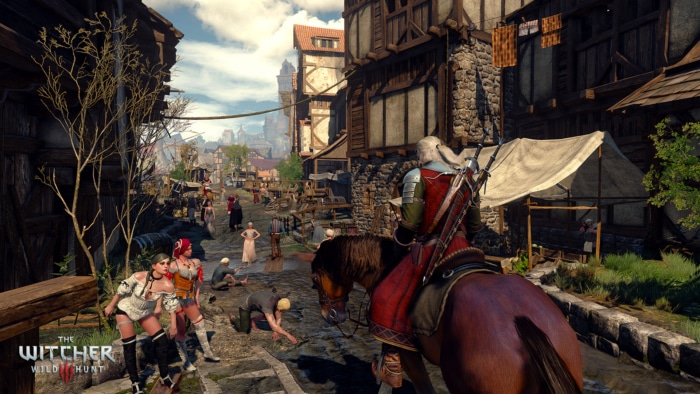
Nonetheless, players sought ways to experience the multiple threads the games offered without necessarily replaying the entire experience from scratch. Saving the game at a crossroads and branching off in one direction to come back later and try the other path was something many players attempted. It was the computer game version of sticking your finger in the page back in the days of Fighting Fantasy novels so that you could come back if you didn’t like the consequences.
CD Projekt Red was among the first to make that cheat impossible when they released The Witcher in 2007. There, the consequences of your actions were time-delayed, meaning you didn’t really see what the results were until they had shaped enough of the future that there was no going back. It was a brilliant move that helped propel the Witcher series into legend.
A New Generation of RPGs
Mass Effect, Dragon Age: Origins, The Witcher, and Fallout 3 were among the big titles at the tail end of the 2000s that shaped choice-driven story-based RPGs for the next decade. They spun a whole generation of amazing titles that formed something new, merged from sources such the classic strategy-based RPGs, point-and-click adventures, first- and third-person action games, puzzle games and even driving simulators. Willing to take inspiration from anything that had gone before them, the RPGs of the 2010s were a smorgasbord of ideas, blended to make immersive experiences in fantastical worlds that were exactly what those early pioneers had hoped for back in the 1970s.
Fresh In
With titles like Dishonoured, Until Dawn, Life is Strange, and Detroit: Become Human, choice and player agency was given centre stage. The results are magnificent—engrossing, absorbing narratives that present gaming as art in a very real way.
Coming Next…
As the line between RPGs and action titles narrowed, the options for exciting adventures expanded. Join us next time when we see how skill with a controller becomes part of the role-playing genre.

